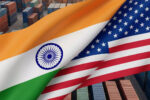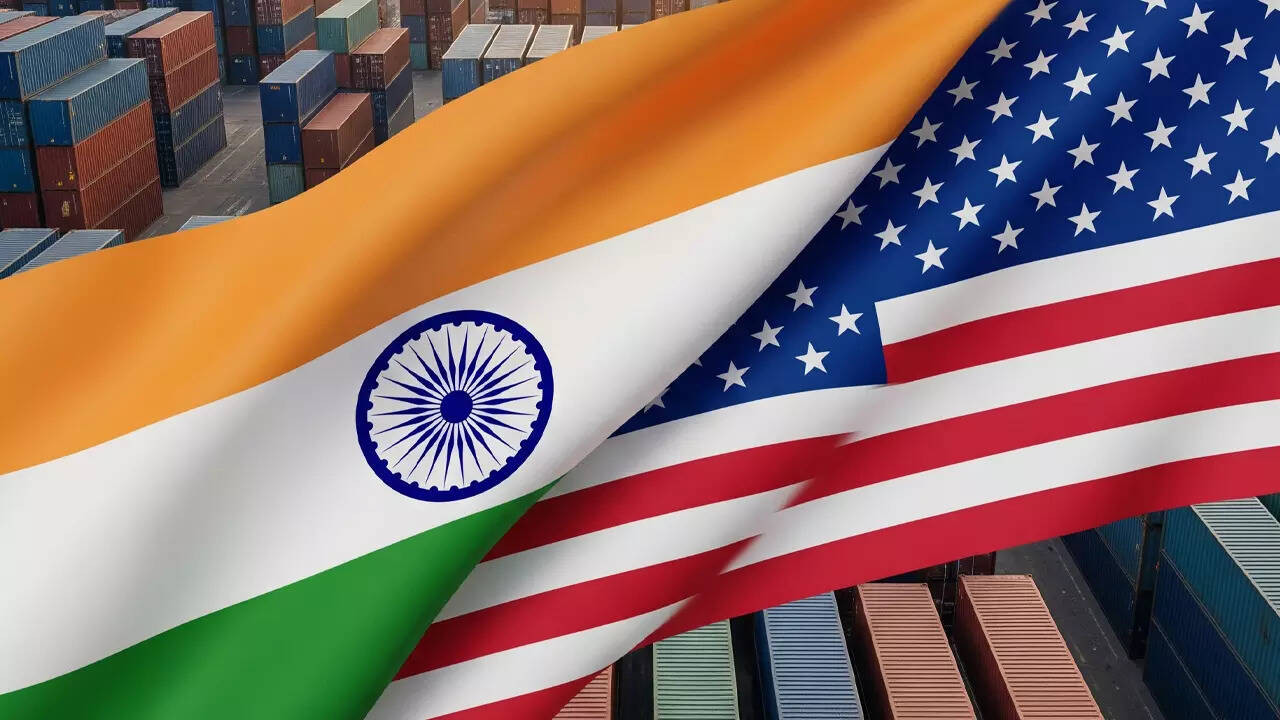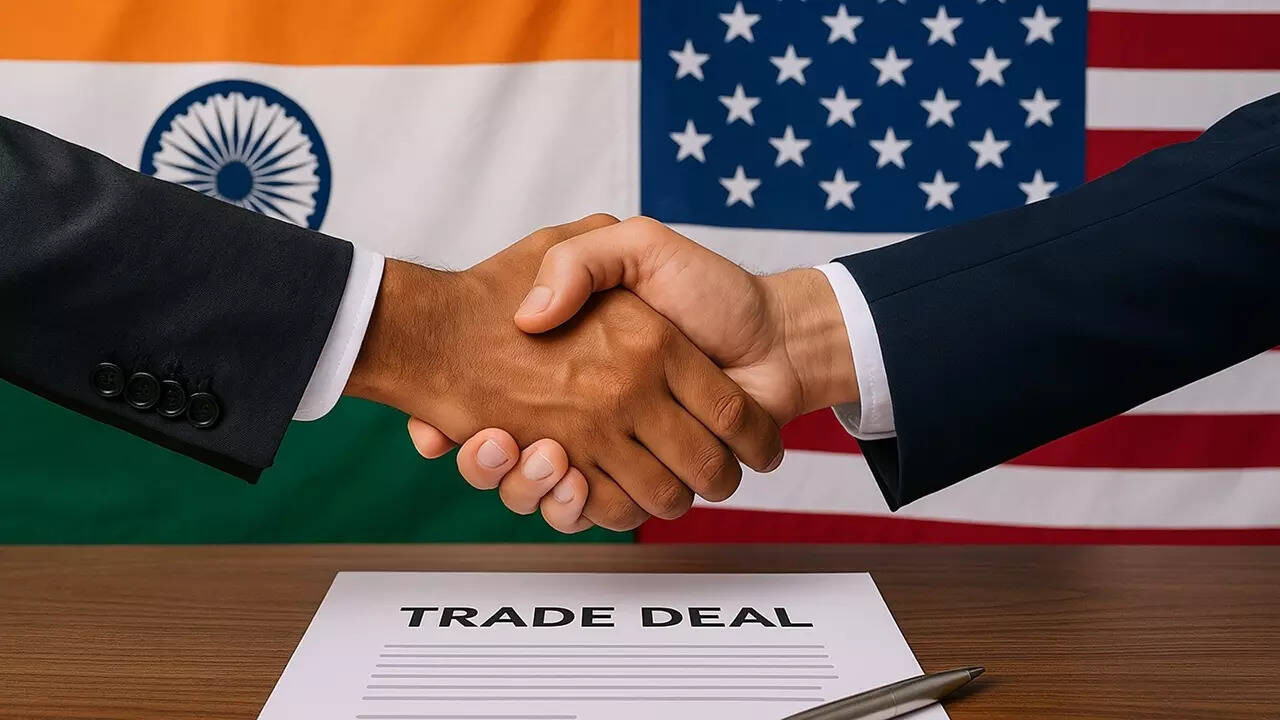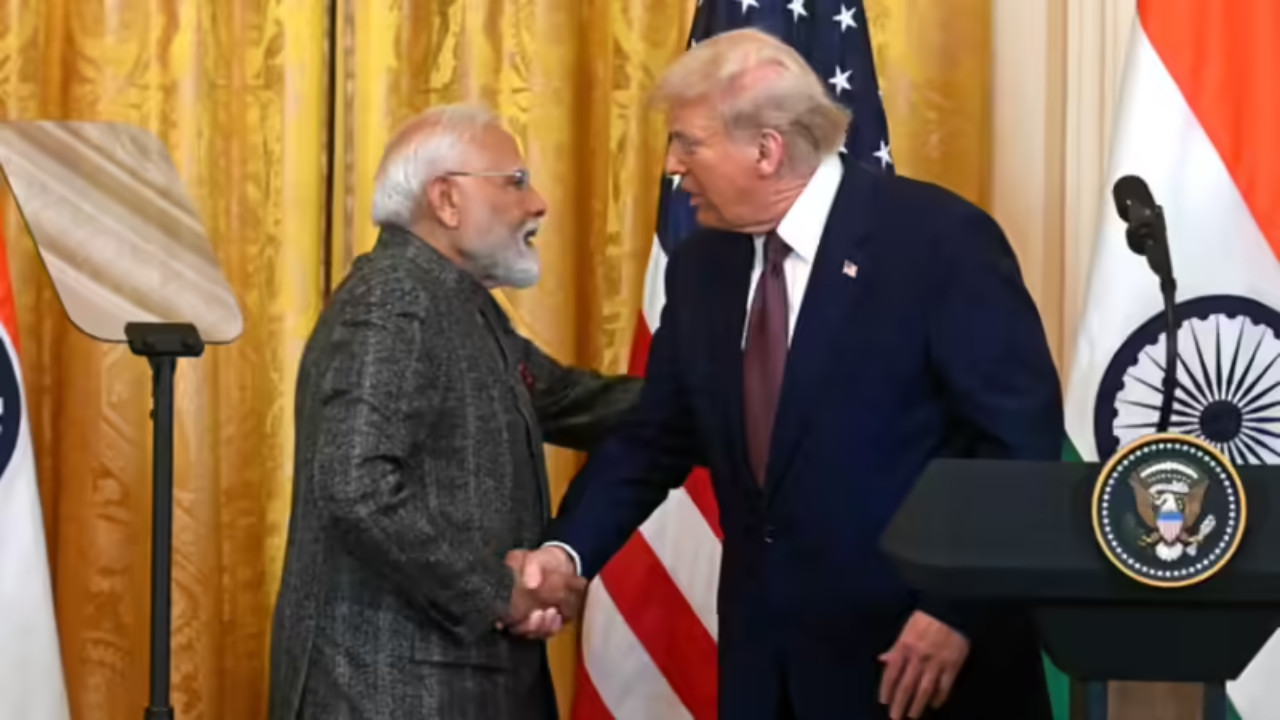Amidst criticism over India’s Russian oil purchases, former US President Donald Trump claimed ignorance about the US importing fertilizers and chemicals from Russia. He accused India of profiting from reselling Russian oil and threatened tariff hikes, prompting a strong rebuttal from India, which cited strategic necessity and questioned the hypocrisy of Western nations continuing their trade with Russia.
Trump’s Trade Talk Takes a Turn: Uranium, Fertilisers, and India
The political and economic landscape is constantly shifting, a complex dance of tariffs, treaties, and tensions. Recently, that dance brought former President Donald Trump face-to-face with a pointed question about India’s stance on US imports of Russian uranium and fertilisers. His response, characteristically direct, has added another layer to the ongoing trade narrative.
The question arose during a campaign event, cutting through the usual rhetoric and zeroing in on a specific issue that highlights the intricate web of global trade relations. It’s a situation where geopolitical considerations collide with economic realities, and where the interests of nations like India, the US, and Russia find themselves intertwined.
Uranium Imports: A Thorny Issue
The backdrop to this exchange is the ongoing war in Ukraine and the subsequent sanctions imposed on Russia by the US and its allies. However, the US continues to import uranium from Russia to power its nuclear reactors. India, a key player on the world stage, has seemingly questioned the consistency of this policy, particularly when compared to the restrictions placed on other Russian goods.
Why the apparent double standard? The answer likely lies in the complexities of energy security. The US relies on Russia for a significant portion of its uranium supply, a crucial element for powering its nuclear plants. Disrupting this supply chain could have serious consequences for America’s energy grid, potentially leading to price hikes and instability.
This reliance has opened the door for criticism, with some arguing that the US is effectively funding Russia’s war effort by continuing to purchase uranium. It’s a delicate balancing act, weighing the need to maintain energy independence against the moral imperative of isolating Russia economically.
Fertilisers: Feeding the World, Fueling Debate
The issue of fertilisers adds another dimension to this trade puzzle. Russia is a major exporter of fertilisers, essential for agricultural production worldwide. Sanctions on Russian fertilisers could have devastating consequences for global food security, potentially leading to shortages and price increases, impacting countries already struggling with hunger.

India, a nation with a large agricultural sector, is particularly sensitive to disruptions in fertiliser supply. Access to affordable fertilisers is crucial for ensuring food security for its vast population. This reality informs India’s approach to trade with Russia, even amidst international pressure to isolate the country.
The ethical considerations here are stark. While sanctions aim to punish Russia for its actions in Ukraine, they can also inadvertently harm vulnerable populations around the world. Finding a balance between holding Russia accountable and mitigating the potential for humanitarian crises is a challenge that requires careful consideration and international cooperation.
Trump’s Response: A Glimpse into Future Trade Policy?
Trump’s response to the question about India’s concerns was, predictably, direct and forceful. While the specifics of his answer are nuanced, the underlying message suggested a willingness to re-evaluate existing trade agreements and potentially take a tougher stance on countries perceived to be benefiting from trade with Russia.
What does this mean for the future of trade relations between the US, India, and Russia? It’s difficult to say definitively. Much will depend on the evolving geopolitical landscape and the policies of future administrations. However, Trump’s comments highlight the ongoing tensions and the potential for significant shifts in trade policy. His perspective underscored the importance of prioritizing American interests in any trade arrangement, even if that means challenging existing norms and relationships.
The interplay of uranium, fertilisers, and geopolitical strategy paints a complex picture of international trade. The situation demands careful navigation, balancing economic interests with moral considerations and the ever-present need for global stability. As the world continues to grapple with the consequences of the war in Ukraine, these issues will likely remain at the forefront of international discussions. This situation also impacts the global uranium marketplace.
The questions surrounding uranium and fertiliser imports underscore the interconnectedness of the global economy and the challenges of crafting trade policies that serve both national interests and the greater good. As discussions continue, it is crucial to promote transparency, foster dialogue, and seek solutions that mitigate the potential for unintended consequences.
[Internal link to related article]







